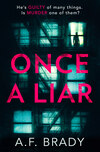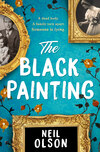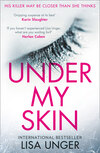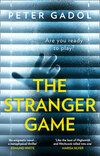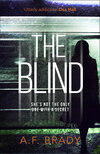Kitabı oku: «Once A Liar», sayfa 4
THEN
Still early in our relationship, I met Juliette at the carousel in Central Park for an afternoon date. She said it reminded her of her childhood, and she would often come to listen to the music and watch the children playing. We sat together on a bench, just close enough to hear the carousel and bursts of laughter.
“How is everything going with the congressman’s case?” Juliette asked, her voice tenuous.
“It’s going well,” I lied, still fearful that we were making the wrong decision going to trial. “Your father seems very confident that we will come out on top.”
Juliette sighed heavily and intertwined her fingers in mine. “What do you think is going to happen? Are you confident you’ll come out on top?” She squeezed my hand and looked at me with a genuine concern that I had never experienced before.
“Honestly? No. I can’t get into details with you, confidentiality issues, but I’m not really convinced that we’re making the right decision. But Marcus has been in the business far longer than I have. I trust him, and I know he wouldn’t lead me astray.”
“Peter.” She pulled her hand away gently. “How well do you know my father, really?”
“He’s my business partner. I think I know him quite well, why?”
“He’s a very calculating man.” She stalled and stopped herself before saying any more. “Just be careful, please.”
“What do you mean?” I was immediately intrigued. Somehow, I had managed to go on four dates with Juliette before we realized that I was building a partnership with her father, and now she was making dodgy implications that I was in danger. “What do I need to be careful of?”
“I wasn’t totally honest with you when I said I didn’t know you were opening Rhodes & Caine,” she confessed with an apologetic look.
“I figured as much. How could you not have known?”
“No, I didn’t know, my father never told me anything. He really does keep me in the dark with his business dealings. I mean that I had suspected you were talking about my father when we were having dinner after the Eileen Cutler lecture.”
“Why didn’t you say anything?”
“You seemed so taken with him, so hell-bent on becoming like him—I didn’t want to ruin your perceptions with the truth.”
“Juliette, what are you saying? What’s the truth?” I wanted to listen to her concerns, but I couldn’t imagine that associating with Marcus could be anything less than advantageous for me.
“I’m sorry. I shouldn’t have said anything. I know you’re busy preparing for this case, and there’s no reason for me to throw a wrench in it. I don’t want to compromise what we have going on.” She smiled warmly, clearly trying to shift her demeanor. “I’m really enjoying spending time with you.” She grabbed my hand again, this time with both of hers.
“Tell me,” I said. “Whatever goes on between me and your father has nothing to do with what goes on between you and me. They are very separate relationships, and it’s important you know that.” I kissed her knuckles. “I’m enjoying spending time with you, too.”
She expelled an exaggerated sigh and flopped back against the park bench. “Please be careful with him. I know how charming he is. I know how successful he is. But he’s a dangerous man, and he’s capable of...” Again, she stopped midsentence and began wringing her hands, leaning forward toward the children at the carousel. “Our relationship... It’s not good. We were close when I was a child and he was just getting a foothold in the legal world. But he changed. He became so...cold and—and I wouldn’t want that kind of thing to happen to you.”
“What makes you think it’ll happen to me?” Her sentiment was kind, but I worried she was telling me this only to keep me away from the grueling hours of work, and maybe taking out some of her issues with her father on me.
“You remind me so much of him. The way he used to be. He was so attentive and charming, like you. And this job was what changed him. It’s like he lost his humanity, lost all sympathy and compassion.” Genuine concern warped her beautiful face—she wanted to be heard.
“Don’t worry about me.” I patted her thigh, almost dismissively. “I understand that defense attorneys don’t have the best reputations, but we’re not all bad. I know exactly what I’m doing.”
We stood and began meandering slowly through the park together. I looked at her warnings as a sign of her affections for me, and I swelled with pride and excitement that this woman who I found so desirable was showing such an interest in me. I didn’t heed her advice against Marcus. I wasn’t worried about him.
* * *
One evening early on in the Bogovian trial preparations, Marcus took me out to the Penthouse Executive Club. I felt completely out of place—I never liked strip clubs much—but I didn’t want to disappoint him. He knew the doorman and we were escorted to an elevated VIP room, with an unobstructed view of the stage, two couches and our own small bar and bartender. Two beautiful women were waiting at the steps to usher us up.
“You ever been here before?” Marcus asked me as we sat together on one of the couches.
“Not to this one, but I’ve been to strip clubs before.”
“You like strippers, don’t you?” He held an emaciated blonde with enormous implants on his lap and pushed her face away from his.
I was never particularly interested in oiled-up women being paid to dance for me; I felt sorry for them. But I nodded anyhow.
“Of course you do. Who doesn’t?”
I looked around the club—dark, smoky, everything lit in purple and blue—and began to feel a sickness crawling up my stomach. Women all around me writhed and bounced and although they were putting on a great show, I couldn’t begin to believe that they felt anything more than degraded in there. I looked at their faces, wondering what they really dreamed of doing. Wondering what could have come of them if they didn’t find themselves in this place.
“You want a dance, Peter?” Marcus asked me, roughly swaying the stripper on his lap back and forth.
“I think I’d prefer just to have some drinks and watch the show, thanks.” I held up my cocktail and tried to focus on the stage.
“Suit yourself,” he said, and I heard a squeak of pain come from the dancer. He wrapped his fingers around the back of her neck and pulled her down to the ground. She stumbled but complied, and her head flopped against the floor with her lower half still partially sitting on Marcus’s lap. When he stepped on her cheek with his shiny black Oxfords, I jumped from my seat and reached out to help her.
“Marcus—Jesus Christ!” I blurted. He stared into my eyes with a stony cold look.
“You want me to stop?” he asked, with mock surprise in his voice.
“Yes, Marcus, please let her up.” I extended my hand to help her to her feet, but Marcus held back my arm. I had never seen him like this. He was my hero, my mentor, he didn’t behave like this; he was supposed to be a gentleman, noble, a man of the law. I shoved Marcus’s arm away and took the hand of the stripper, getting down on my knee to help her up. I was ashamed. I didn’t want to be associated with him in that moment.
“Let go, Peter,” he snapped at me. Conflicted, aware that my career and future sat squarely in Marcus’s hands, I let go of her arm.
“Marcus, this poor woman,” I began, not yet stifling my instinct to protect her.
“This isn’t a woman, Peter.” He pulled her back up, and I could see her wince. “This isn’t a person—that’s what I’m trying to explain to you. This is an object. A thing. The sooner you can see that, the sooner you’ll be a real criminal defense attorney. Until then, you’re just another hotshot upstart. Her pain and humiliation mean nothing to me, and they should mean nothing to you.” He roughly released her, and she scuttled quickly down the steps. My breath caught in my throat. I was disgusted.
Marcus wiped his hands on a napkin and gazed at the dancers onstage as if nothing had happened. I looked at my mentor, this legendary defense attorney, and finally saw exactly where his success came from.
Juliette was right, and I should have listened to her warning. It wasn’t his gentlemanly behavior and legal wizardry that made him the most successful criminal defense attorney in New York. It was his inhumanity that allowed him to reach the top.
And just as Juliette warned, it was the same inhumanity I was expected to achieve if I wanted to reach Marcus’s level.
NOW
I am supposed to be playing the role of father now that Jamie has moved in, and since I skipped out on dinner yesterday, Claire demanded that I stay home and interact with my son instead of heading to the office on a Sunday afternoon.
“His first night was incredibly awkward,” she says, “and of course it was. He didn’t even eat dinner. He just went up to his room like you did.”
“Remind me how this is my fault, Claire?” I say, still getting ready to go to the office.
“You should have been here. You should have welcomed your son on his first night in your house. You didn’t make any effort at all.” Claire isn’t looking at me. In fact, she hasn’t made eye contact all morning.
“I have to work, Claire. How do you think I afford to provide all of this for him? Sometimes I won’t join you for dinner. You’ve always understood that. He’s just going to have to understand it, too.”
“Oh, stop it, Peter. I know you weren’t at work. I called the office while Jamie and I waited for you, and Anna told me you’d left hours ago. Don’t feed me your lies.”
Caught but unconcerned, I continued to focus on tying my tie.
“He didn’t mention anything about his room. I tried so hard to make it welcoming for him. It’s like I shouldn’t have even bothered,” Claire pouts. She’s not talking to me anymore, just speaking her mind aloud and airing her frustrations into the mirror. I watch her shake the negativity off herself, still determined to make strangers into family.
“Peter, please at least have lunch with us today before you go into the office. For me. I got your note yesterday, the one that said I get to be a mother now? Well, you have to be a father now. It’s Sunday. Please. Stay for lunch.” She turns and rushes down the stairs.
I stand on the landing outside my bedroom and wait until I hear the murmur of chatter in the kitchen before I gently make my way down the steps to Jamie’s room. I’m curious to see what it’s like to have him in this house.
Jamie is impeccably tidy, and I am impressed with the way he’s made his bed and folded his clothes in the closet. I walk around and look at the pictures sitting on the bookshelves, photos of me with bigwig CEOs on fishing trips, of me shaking the hands of politicians and criminals on the steps of courthouses. A photo I don’t recognize is propped up against a frame; a picture of Juliette in a long yellow gown. As I lift it out of the way, I see it’s obscuring a picture of me with my arm around John Gotti holding a giant fish. I lay the photo back in front of a different frame.
I sneak down the stairs to the parlor floor and hear Claire and Jamie chatting in the kitchen. I peek in through the slightly propped door.
“How have you been doing? It’s only been a week since your mom passed.” Claire doesn’t look at him, busy shoving herbs and lemon peels into the cavity of a chicken.
I hear Jamie take a deep, ragged breath before responding. “It’s weird. I mean I knew it was coming, you know? She was sick, but—I guess it still hasn’t really hit me. I feel like I’m on vacation staying here. It doesn’t feel like this is my house.”
“Well, you just got here, sweetie. It’s going to take a little while before you feel comfortable. Sometimes even I feel like I’m vacationing here.” She peeks out from behind the carcass and grins warmly at Jamie.
I step into the doorway to make myself known before they can delve further into their irritating discomforts.
“Hello,” I say, walking into the kitchen as if I hadn’t been listening to them.
“Hi,” they both respond at the same time. Claire’s face flushes, and she busies herself with lunch instead of admitting to me that she’s uncomfortable in my house. Jamie looks at me with the expectant eyes of a teenager. What could he possibly want from me?
“Jamie, welcome. I’m sorry I wasn’t here to help you get settled yesterday. Big case I’ve been working on, I hope you understand.”
He shrugs like he didn’t even notice my disappearance.
“Good. I’m sure Claire took great care of you.” I glare at her, silently letting her know her lecture was unwarranted.
“I’m making a feast for lunch here, Peter. Jamie didn’t eat anything last night, and I don’t want him to starve to death,” she says lightly, obviously trying to change the subject.
“Fine,” I say, using an authoritative voice I hardly recognize. “I’ve got some work to do, so I’ll be in the parlor. Let me know when it’s ready.” I step through the threshold and sit down in front of the fireplace in the parlor. I pull some papers from my briefcase and open my laptop, but instead of working, I’m straining to hear what’s happening in the kitchen.
Claire leaves the chicken to roast while Jamie tells her about his classes and friends at school. The details are boring, and I’m not hearing my name, so I tune out and focus my attention back on the computer.
After nearly an hour of mundane chatting, I hear the sounds of cupboards opening and closing and the clatter of plates and silverware. I focus back in on them to hear what they’re saying.
“Do you like going to the movies?” Jamie asks her.
“I like watching movies at home—I haven’t been to a movie theater in a long time. Ever since the bedbugs thing in New York, I got really grossed out by those places. There’s a huge screen down in the basement with big leather chairs. It’s really fun to watch down there. It’s like being in a clean movie theater.”
That’s what I like to hear, something positive. At least I’ve provided a good place for movie watching.
“What kinds of movies do you like?” Jamie asks, classic teenage attempt to find common ground with a grown-up.
“I like everything. Action, comedies, romantic stuff that you probably hate. I like sports movies, too. My favorite is definitely Field of Dreams.”
“I love that movie. Been watching a lot of the superhero stuff these days. Lots of Batman movies.” Jamie’s jovial tone turns pensive and my ears perk up. “I feel like Batman sometimes.”
“You feel like a superhero?” I can hear the hopefulness in Claire’s voice.
“No... I feel like an orphan.”
“Oh, Jamie. I’m so sorry. You must miss your mom so much.”
Now I’m getting agitated, and I don’t know if I want to listen anymore. I don’t need to hear about Jamie’s feelings of being orphaned. It’s not my fault his mother is dead.
“Yeah, and I wish I knew my dad. It’s like he doesn’t really exist, you know? My friends tell stories about their dads coming to lacrosse games and taking them on vacations, and I can only tell them stories that my mom told me. And I know she made them up.”
I stand and lean against the doorframe in the parlor to hear them, careful not to step on a creaking floorboard.
“What did your mom tell you?” Claire asks, and I hear the clattering of the oven door close.
“What a nice guy he is, and that person we saw on TV during big trials was just his professional persona. She said that he really loved me and wanted to stay with our family but that he didn’t know how to. She told me about when they first met, and he would take her out on these fancy dates and plan these special surprises. She told me this one story about a scavenger hunt that he set up for her across New York City. She said he made her feel special. But I never saw him like that. He always ignored me.”
I feel a twinge of defense brewing in my stomach as I listen to Jamie list my perceived shortcomings.
“One time he called me Charlie,” Jamie adds. “Couldn’t even remember my name.”
Did I? I chalk it up to a Freudian slip.
“He’s a good man, your dad.” Claire begins her well-versed defense. “Just sometimes it gets lost under his...his armor. He doesn’t mean to hurt anyone.”
“Is he nice to you?” Jamie asks delicately.
I strain to hear how Claire responds. I know I’m not nice to her. At least not lately.
“Well, no, not all the time. But he can be. And when he is, it makes all the other times worth it. When he’s good, he’s perfect, but when he’s bad...”
Now I’ve had enough. I won’t allow this conversation to continue. I loudly slap the laptop closed and make a point to rustle the papers as I shove them back into my briefcase.
“Does he even know how much he hurts people?” Jamie lays out a final question.
Before Claire can compose an excuse for my behavior, I walk through the parlor doors to join them in the kitchen. I can just see Claire quickly bring a finger to her lips and extend her pinky across the table. Jamie takes it in his pinkie and mimics her finger to his lips. I walk into the kitchen to see my newfound family sharing what they think are secrets behind my back. I don’t tell them that I heard every word.
THEN
I left the club that night before Marcus did, sick to my stomach by his behavior with the dancer. Marcus’s cruelty was deeply etched in his treatment of others, and as I walked home that night, I feared that Juliette’s words were truer than I had given them credit for. I walked downtown, the air cool and fresh, my head filled with contradiction.
I had come to New York to become the next Marcus Rhodes. My ambitions were materializing before me, and I couldn’t allow myself to be held back professionally because I took personal issue that my mentor turned out to be cruel and inhumane. I always knew I’d have to temper my soft side to succeed in this business, but I wouldn’t allow myself to become like Marcus. He was just teaching me a lesson with the dancer, I told myself. A lesson I would be sure to learn sooner rather than later.
It took every ounce of my energy to dig up the dirt on the Bogovian accuser. On the surface, she seemed picture-perfect. I asked around at her high school and her university down in North Carolina. I called everyone who might be willing to throw an old friend under the bus. A college roommate proved to be just the person I was looking for.
The case was making headlines well before we went to trial. Bogovian was portrayed horrifyingly, if accurately, in the press, and my job became harder as I was forced not only to deliver a case that would produce sufficient doubt, but also surmount the image the media had disseminated. Jury selection was a nightmare; everyone in New York had heard of Stu Bogovian and everyone had an opinion. Finding peers without preconceived notions proved incredibly difficult. I was meticulous in my preparations, acutely aware of Marcus’s expectations of me.
The trial itself didn’t take more than a couple of weeks. The alleged victim had a roommate in college who was willing to testify that she was into kinky sex. The roommate had told me a story about the girl being left tied to the bedpost in an encounter gone wrong, and she simply lay there, naked and spread-eagled, waiting for the roommate to find scissors to remove the binding. It started to seem plausible to me that this woman was nothing but a money-grubbing slut, like Marcus said she was, looking to extort a wealthy man. She had probably asked to be tied up, I told myself.
I brutalized the girl’s reputation in court. I brought up every name, every story, every sexual encounter I could verify. After closing arguments, there was nothing to do but wait while the jury deliberated.
Marcus stood by me, reminding me to temper my sense of remorse for publicly destroying the intern’s credibility. But mostly it felt like he was just trying to relieve me of human decency.
It took the jury four days of deliberation to come back with a verdict. When the jurors filed back into the courtroom and we all stood to listen to their decision, my confidence was so high, I had my celebratory cigar unwrapped and clipped in my jacket pocket. I had discredited the accuser. I had poked holes in the prosecution’s timeline and evidence. Although I struggled with the moral depravity, I’d had to do what I’d done to get the win. I knew we would come out on top.
The foreman walked the paper to the judge, and as he read the verdict to himself, he looked directly at me. I could see the traces of a smile upturning the corners of his mouth. My confidence grew even more.
I stood up and pulled Stu’s chair out for him. “Here we go,” I whispered. Stu smiled and shook my hand.
The foreman returned to the bench, looked at the victim’s lawyer as he spoke and refused to make eye contact with me or with Stu. “We, the jury, in the above entitled action, find the defendant Stuart Bogovian guilty of assault in the first degree.” They went on to find him guilty of first-degree attempted rape.
The room suddenly felt warm and claustrophobic. I turned to look at Stu, who fell back into his seat and grasped his greasy hair with his sweaty palms. He tugged the bottom of my suit jacket and pleaded with me to do something. “What the fuck, Caine? I thought you said we had this in the bag?”
I couldn’t choke out a word, watching Harrison and Eric Gordon explode with excitement as cheers rose from the crowd. My head felt stuffy and faraway, like I was watching the verdict on an old television through layers of static. Everything felt like it was moving quickly around me, but I was trapped in some slow-motion underwater world where I couldn’t move or react.
The bailiff put Stu in handcuffs and court officers led him away while I stood, disoriented and confused, wondering if what was unfolding around me was really happening.
Stu struggled as the officers opened the door to exit the courtroom, and he screamed accusations and profanities my way. “You’re a fucking fraud, Caine! You’ll never succeed in this town, mark my words!” The door slammed behind him as Harrison and Eric walked across the aisle to gloat in my face, unable to contain their satisfaction.
Eric, smirking at me, extended his hand, clearly a faux-professional gesture.
“Can’t win ’em all, eh, Peter?” He laughed.
I gathered up my papers and briefcase, nodded his way and muttered, “Well played.”
Harrison, for his part, didn’t even attempt to shake my hand or show any dignity. He just slapped his ADA on the back and led him away, looking at me with judgment plastered all over his face.
The reporters waiting outside the courthouse were merciless. Shoving cameras and microphones in my face, hollering questions as I shielded myself from their torments, walking quickly to the curb and jumping into the back of a cab.
Once home, my mind finally cleared, and the realization of what just happened began to sink in. The sickening taste of defeat didn’t sit well with me. I poured myself two fingers of scotch to wash down the bitterness in my throat and turned on CNN to find Eric and Harrison on-screen. Harrison stood larger than life behind his ADA, and Eric took the microphone to speak. Before I could hear what he had to say, my phone rang, and I snatched it up immediately.
“Angry?” Marcus asked me from the other side of the line.
“Furious,” I responded, though I was still more bewildered than angry.
“Good. That’s the kind of fuel you need.” He drew in a deep drag of his cigarette and I could almost hear him grin.
Just as I was about to respond, I suddenly understood what was happening. “You did this...you did this on purpose? You knew we would lose?”
“Of course we would lose, Peter. This was a completely unwinnable case. I’ve always known what you were capable of, and I’m not talking about legal skills.” He sucked in another drag. “You needed to get your ego in check and you needed to access the useful parts of yourself.”
“The useful parts?” A rapid succession of visuals passed through my head, and I remembered watching Marcus Rhodes, my legal hero, a god to my classmates in law school, gutting his opponents in courts without mercy or pity.
“The useful parts are the cold ones, Peter. The unsentimental, remorseless, brutal parts. That’s what you need in your career. Put that sympathetic bullshit behind you and embrace the fury you feel right now.” He was a monster, and I had sold my soul. Juliette’s warning that afternoon in Central Park flashed like a neon sign in my head.
As Marcus instructed me to accept my spite and anger, I struggled to reconcile my thoughts. I couldn’t accept that Marcus would set me up to fail and damage my pristine reputation, the one thing I wanted so badly to maintain. I looked up to him, and for me to learn from him and achieve his levels of success, I couldn’t turn against him—I couldn’t start to hate him.
“Why would you put me through this, Marcus? I did everything you asked of me. Why humiliate me like this?” I didn’t want to whine or appear unappreciative, but I couldn’t understand what we could possibly gain through failure.
“I didn’t do this to you—Harrison Doyle did. Don’t be mad at me, Peter. Get mad at him.” I focused in on Harrison’s pixelated face on the television. It wasn’t Marcus who would be on the receiving end of my hate; it was Harrison Doyle.
I hung up the phone, in need of a distraction. I headed to Bull & Bear at the Waldorf, assured I was far enough uptown to avoid anyone involved in the Bogovian case. But, of course, with the luck I was having that day, Harrison was there, holding court at the bar. I dreaded speaking with him, though I wanted to hear exactly what he had to say. I craned my neck to listen.
“Peter Caine is an ineffective upstart, lacking the singular ability it takes to win cases—heart. Even his client called him a fraud.”
Harrison went on to slander Stu Bogovian, spurred on by the gasps and guffaws of the rest of the lawyers. My ears filled with a burning heat, and the word ineffective blared in my head over and over again. Harrison Doyle said I was a feeble attorney, that I couldn’t do my job. He trashed my reputation in front of colleagues and peers.
My humiliation turned to anger and was then replaced with a burning, malicious drive. Marcus was right—it was Harrison who put me in this position, not Marcus. Marcus was teaching me how to be the best, and I was going to get there. All I needed to do was follow Marcus’s path, coldhearted as it may be.
Ineffective? Never. I vowed to make Harrison regret those words. And oh, how the tables would turn.
